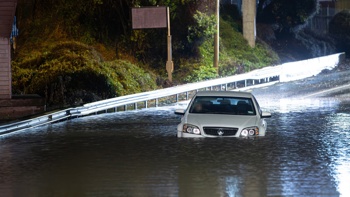
Auckland first-home buyers are paying a median price of $699,000 to get the keys to their own home.
That's according to new sales data released to the Herald by analysts CoreLogic, which also showed first home buyers could save at least $90,000 by buying a three bedroom KiwiBuild house.
First time buyers paid a median of $740,000 for three-bedroom homes in Auckland this year, $642,000 for two bedrooms and $515,000 for one bedroom, the data showed.
The price buyers were willing to pay for their homes sat well above the maximum $500,000 to $650,000 price caps the Government has set for similar sized KiwiBuild houses in Auckland and Queenstown.
CoreLogic senior analyst Nick Goodall said it showed the Government's efforts to keep build costs down had been "very positive" so far.
"The key focus early on with the programme seems to be to improve the affordability of new builds" with the delivery of large numbers of homes likely to follow in the coming years, he said.
The Labour-led Government has vowed to make New Zealand housing more affordable by committing $2 billion to build 100,000 KiwiBuild "modest starter homes for first home buyers over the next decade".
Around 50,000 of these are planned for Auckland with the first 18 set to soon be sold in Papakura with an expected price of $579,000 for a three-bedroom home and $649,000 for a four-bedroom home.
Despite progress to date, debate has swirled ever since the Government first announced its KiwiBuild programme about whether the homes will actually be affordable for ordinary Kiwi families.
/arc-anglerfish-syd-prod-nzme.s3.amazonaws.com/public/FQWFWMOZQNHRTPVIFPBLXZ7J44.jpg)
A recent report by financial website interest.co.nz found Auckland was unaffordable for a typical first home buying couple, who would need to spend more than 40 per cent of their weekly salary to pay off a mortgage of $600,000.
CoreLogic's Goodall also cautioned that while the new data appeared to show first home buyers were willing to pay higher prices than the value of KiwiBuild homes, there had only been 2132 sales this year.
This indicated there may be many other first home buyers out there who cannot afford to buy in Auckland, he said.
Loan Market mortgage adviser Bruce Patten said that while the Government could take some "validation" from seeing its KiwiBuild prices undercut market prices, it didn't necessarily mean the homes were affordable compared to a family's average salary.
/arc-anglerfish-syd-prod-nzme.s3.amazonaws.com/public/3AFO5A7XSNDCDPX2X7N4UBMQ5A.jpg)
"The KiwiBuild homes are priced relative to the market, and I don't think they can make them any cheaper," he said.
He said KiwiBuild homes could become more affordable for families over the next decade as their wages rose if the Government was able to maintain its current KiwiBuild prices while ramping up production.
Chris Glaudel, the deputy director of non-profit lobby Community Housing Aotearoa, said KiwiBuild would bring on a much needed supply of new homes but there would still be many households that couldn't afford to buy one.
These families needed a different pathway to buying a home based on the size of their income rather than market prices.
Such pathways included rent to buy home ownership schemes and housing developments that allowed families to live in affordable rentals so they can save more money for a deposit, he said.
/arc-anglerfish-syd-prod-nzme.s3.amazonaws.com/public/CTV5VDHPSVA6LKJPRA4RIMERW4.jpg)
Out of four regions across Auckland, the North Shore was the most expensive for first-home buyers, who paid a median of $839,000 for three bedroom homes, $690,000 for two bedroom homes and $476,250 for single bedroom houses.
Waitakere first-home buyers paid $700,000 for three bedroom, $603,500 for two-bedroom and $485,000 for single bedroom homes.
Buyers in the Manukau area paid $689,500 for three bedroom and $595,000 for two bedroom homes, while those futher south in Papakura paid $624,000 for three bedroom and $519,000 for two bedroom houses.
Elsewhere, Wellington City first home buyers paid a median of $657,400 for three bedroom homes - or $157,400 more than the maximum $500,000 price cap the Government has set for all KiwiBuild homes outside of Auckand and Queenstown.
Tauranga - where buyers paid $520,000 for three bedroom homes - was the only other place with Wellington where buyers paid prices higher than the $500,000 cap.
Take your Radio, Podcasts and Music with you









